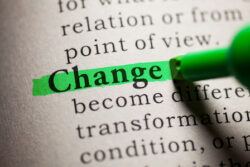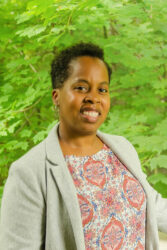Becoming the Change
Becoming the Change
Lake Dissertation Fellow, Feyza Akova, is a PhD candidate in the Department of Sociology at the University of Notre Dame. In this essay, she shares a bit about her dissertation, “Journeys to Traditional Sufi Islam in America: Self-transcendence, Tradition, and Social Change in the Contemporary Modern World.
Becoming the Change: Sufism, Self-transcendence, and Social Change
“Yesterday I was clever, so I wanted to change the world. Today I am wise, so I am changing myself,” says Rumi, a renowned Sufi poet. The philosophy of Sufism that underlies this Rumi quote does not suggest that we should give up hope on changing the world and only work on ourselves. Instead, it argues that changing the world requires spiritual transformation and efforts toward self-transcendence.
In my dissertation research, I hope to expand our understanding of self-transcendence and spirituality by unveiling their connection with giving and social service. Self-transcendence and spirituality, especially due to their inward orientation, can often be understood as a form of religiousness disconnected from civic participation, collective action, and voluntarism. Sufism offers an alternative view of this connection between inner transformation and voluntarism. For the Sufis, the process of inner spiritual transformation requires acts of ihsan, or “doing good,” which often take the form of love and serving others.
A Catalyst for Social Change
Islamic Sufism involves an inner journey of self-transcendence based on a student-teacher model of spiritual training which focuses on transcending one’s nafs (i.e., lower self or ego). This spiritual transformation is attained through the realization of personal weaknesses, discipline of negative desires, and cultivation of virtues to develop a closer relationship with God. In order to transcend their nafs, individuals submit to a Sufi Master known as Shaykh who acts as a spiritual guide and follow the distinct spiritual methodology and cultural tools laid out by each Sufi order.
In my dissertation project, Journeys to Traditional Sufi Islam in America: Self-transcendence, Tradition, and Social Change in the Contemporary Modern World, I examine Americans’ attraction to Islamic Sufism and analyze Sufis’ claims concerning how transcending the nafs, or at least limiting it, is viewed as a catalyst for broader social change. While it remains difficult to link inner spiritual practices, aiming at transcending one’s nafs, to social change because of their individual focus, I display how the process of inner transformation motivates individuals toward acts of service, love, and giving. Therefore, it inspires change in others through face-to-face interactions. Through employing a mix of qualitative methods with various Sufi orders in the US, including multisite in-person and online participant observation with Sufi communities, and interviews with converts who have become involved in Sufi Islam in the US, my research offers a window into understanding the relationship between faith and philanthropy. It also highlights the possibilities as well as limitations of the Sufis’ social change approach at the personal, micro, and macro/broader society levels.
Doing Good
At the most basic level, “doing good” relates to ethical self-development and the cultivation of social virtues such as kindness, compassion, patience, generosity, and empathy. Individuals strive to improve themselves through disciplining their negative desires and personality traits—such as arrogance, greed, anger, etc.—which they often refer to as “diseases of the heart.” The interpersonal implications of this kind of self-struggle should not be underestimated. Several Sufis have anecdotally expressed how they have been able to improve their family and community relations by focusing on themselves and being able to better enact social virtues.
“Doing good” can also take the form of various philanthropic projects in Sufi communities, such as feeding the homeless, helping people who have just left prison reintegrate into society, creating support systems for new Muslims who are embracing Islam, and providing shelter, food, and clothing to impoverished people in various parts of the world. Thus, in the Sufi context, self-transcendence is not an inward form of escape but rather involves developing a collective consciousness related to God’s creation which motivates individuals toward voluntary action.
What Kind of Social Change?
Sufis’ logic of social change underlines that change does not necessarily lie in political action but in cultural change through the workings of inner transformation and “changing other people’s hearts” through face-to-face interactions. This view results from a metaphysical worldview in which individuals believe there is a deep connection between microcosmos (inner spiritual states) and macrocosmos (outer world). Additionally, Sufis do not view themselves as the primary agent of social change and uphold a view in which ultimately God is the change maker. Thus, the Sufis believe that indeed with the help of God, inner transformation and enacting sincere actions of love, service, and giving can go a long way.
“If men define a situation as real, they are real in their consequences,” says W. I. Thomas (Thomas & Thomas 1928: 572).¹ This sociological theory, also known as the Thomas Theorem, indicates that individuals’ perceptions of reality, regardless of whether they are true, shape their actions and carry real consequences. Similarly, Sufis’ perceptions of the Islamic metaphysical worldview as real produce a particular kind of orientation toward life and present significant personal and social ramifications. For instance, knowing that God is the actor behind the universe and events results in situations of hope and optimism, especially when circumstances are dire and bleak. This belief system can also motivate individuals to work toward the “impossible” and develop positive attitudes in the face of turbulence, difficulty, and trauma.
My research shows how the meaning systems linked to social change and self-transcendence motivate faith communities and shape their approach to giving and social service. This kind of approach contributes to studies of philanthropy in several key ways: it reveals how individuals’ inner spiritual journeys provide an important source of ethical and moral direction for their philanthropic activities and offers an understanding of the religious dimension of voluntarism, especially as this pertains to self-transcendence, thus challenging views of spirituality as disconnected from civic participation.
¹ Thomas, William. I., and Dorothy S. Thomas. 1928. The Child in America. Oxford: A. A. Knopf.
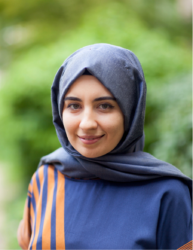 Feyza Akova is a Ph.D. candidate in the Department of Sociology at the University of Notre Dame. Prior to joining Notre Dame, Feyza earned an M.A. in Sociology from University of Houston and B.A. degrees in Sociology and Psychology from the University of Istanbul. Feyza has won several teaching and research awards, including the Midwestern Association of Graduate Schools (MAGS) 2022 Excellence in Teaching Award and the Robert J. McNamara Student Paper Award from the Association for the Sociology of Religion. Her dissertation project, “Journeys to Traditional Sufi Islam in America: Self-transcendence, Tradition, and Social Change in the Contemporary Modern World,” has been supported by the Center for the Study of Religion and Society and Institute for Scholarship in the Liberal Arts at the University of Notre Dame.
Feyza Akova is a Ph.D. candidate in the Department of Sociology at the University of Notre Dame. Prior to joining Notre Dame, Feyza earned an M.A. in Sociology from University of Houston and B.A. degrees in Sociology and Psychology from the University of Istanbul. Feyza has won several teaching and research awards, including the Midwestern Association of Graduate Schools (MAGS) 2022 Excellence in Teaching Award and the Robert J. McNamara Student Paper Award from the Association for the Sociology of Religion. Her dissertation project, “Journeys to Traditional Sufi Islam in America: Self-transcendence, Tradition, and Social Change in the Contemporary Modern World,” has been supported by the Center for the Study of Religion and Society and Institute for Scholarship in the Liberal Arts at the University of Notre Dame.
Questions for Reflection
- How do you define “doing good” from your religious perspective?
- “[T]he Sufis believe that indeed with the help of God, inner transformation and enacting sincere actions of love, service, and giving can go a long way.” How do you connect with this Sufi belief?
Expanded Perspective
I made lasagna for my parents last year. It took me a long time (I am literally a slow cooker), mostly because there were lots of layers. It was fun and my parents enjoyed it.
When I was growing up, my mom made lasagna, and it was one of my favorite things she made for our family. I would watch her spread out the layers and then bake it until it was done. It wasn’t anything fancy. But I loved it, I think, because she loved us. I wanted to make lasagna for my parents because somehow, I think I remember that love.
In my first few weeks at Lake Institute, I’ve observed two Executive Certificate in Religious Fundraising (ECRF) courses led by gifted instructors. Along the way, I’ve had the chance to overhear what ECRF course participants are hearing. And one thing continues to stand out to me as I’ve observed the courses so far: the significance of understanding oneself. Understanding oneself as a faith leader, as a fundraiser, as a donor, has been an important place to start in the course for learning and sharpening any skills, strategies, and practices that can be helpful in fundraising. That self-understanding is an important layer.
One of the ways ECRF participants get a chance to explore their own foundational layer as a donor is through an exercise called the Philanthropic Autobiography. It doesn’t take long for participants to remember who and what has shaped them as philanthropists, as donors. That kind of work must be baked into the preparation for any fundraising effort. Because to see oneself as a donor is to see oneself as belonging to a larger community with a mission and vision beyond oneself. That layer is one of many that becomes something bigger and better in the end.
My mom did not keep her lasagna recipe that she used all those years ago. But I found new recipes. My goal was the same: to offer something that I knew could be good to people with love. And I’d say that is not a bad goal for religious fundraising. Perhaps religious fundraising is like offering something good, an invitation to give, to people with love. It may take time. There may be a lot of layers. But hopefully, one of those layers will be understanding ourselves as members of God’s family, held together with love. There may even be leftovers.
Thomas H. Lake Lecture on March 2
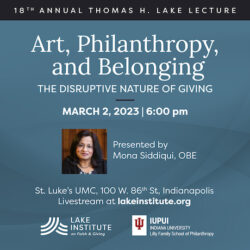 We know religiosity has always played a major role in our giving and volunteering. But with trends in the percentage of Americans affiliating with religious traditions as well as giving and volunteering are declining, what does that mean about our life together?
We know religiosity has always played a major role in our giving and volunteering. But with trends in the percentage of Americans affiliating with religious traditions as well as giving and volunteering are declining, what does that mean about our life together?
Professor Siddiqui will address this and other big questions, reminding us of the role that our religious traditions play in encouraging our giving and disrupting our tendencies toward individualism and self-preservation. Attendees will leave both challenged and encouraged to more fully engage the necessary role that giving plays to disrupt our tendencies to turn inward and helping us to focus on building relationships with one another.
Global Philanthropy: Building a Diverse Community for Social Change
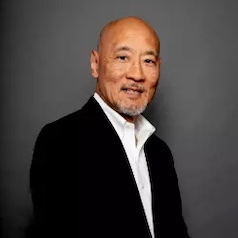 World Affairs, an independent, non-partisan forum for exploring issues and opportunities that transcend borders, believes that solutions to the world’s most challenging problems are found when the private, philanthropic, and public sectors work together. Please join the Mays Institute and Philip Yun, CEO & President of World Affairs, on March 30 at 1 pm ET, as he discusses how he convenes thought leaders internationally, change makers, and engaged citizens to share ideas, learn from each other, and effect change globally. Connecting people in this way leads to informed thinking, conversation, and actions that transcend traditional boundaries and lead to lasting solutions to global problems.
World Affairs, an independent, non-partisan forum for exploring issues and opportunities that transcend borders, believes that solutions to the world’s most challenging problems are found when the private, philanthropic, and public sectors work together. Please join the Mays Institute and Philip Yun, CEO & President of World Affairs, on March 30 at 1 pm ET, as he discusses how he convenes thought leaders internationally, change makers, and engaged citizens to share ideas, learn from each other, and effect change globally. Connecting people in this way leads to informed thinking, conversation, and actions that transcend traditional boundaries and lead to lasting solutions to global problems.
Subscribe
Insights is a bi-weekly e-newsletter for the religious community and fundraisers of faith-based organizations that provides:
- Reflections on important developments in the field of faith and giving
- Recommended books, studies and articles
- Upcoming Lake Institute events

